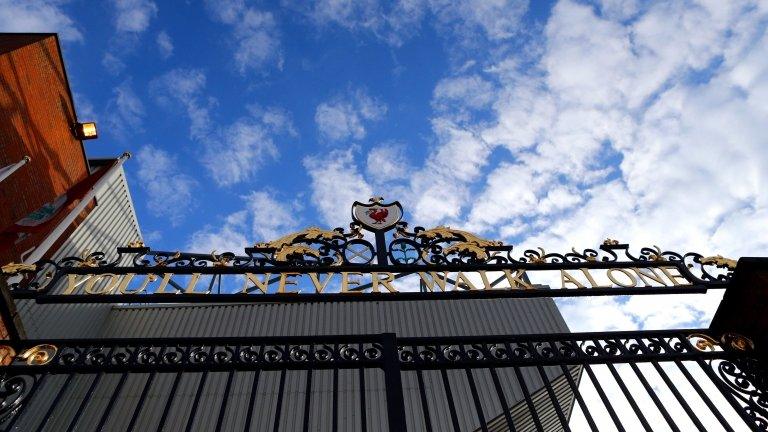Hillsborough stories: Gerard Bernard Patrick Baron
- Published
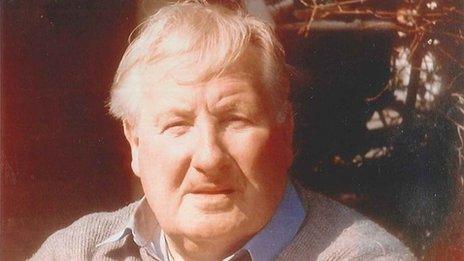
A retired postal worker from Preston, Gerard Baron Sr was the oldest person to die at Hillsborough. He drove to the match with his son, Gerard Martin Baron.
This is the full statement to the inquests read by his son, Gerard Baron Jr:
Mr Baron's other son, Gordon Baron, also provided a pen portrait of his father.

Without hesitation, I have travelled from my home in Adelaide, South Australia, to proudly introduce our father, Gerard Baron Sr, to you all today and hopefully I can do him justice. If I were to speak of all the good of our Dad, I would be here for a very long time indeed.
What I have to say is from the heart. This is something that cannot be manufactured, so I apologise should I become emotional.
Dad entered into this world on 25 June, 1921 to William and Margaret Baron in the parish of St Joseph's, Preston, Lancashire.
His parents came from the most humble beginnings, especially William, his father, who was born in the workhouse or poor house of Blackburn, Lancashire.
Despite their needy predicament, they raised their children, including my father, to be good Christians, compassionate, law abiding, loyal, honest, protective, truthful and worthy citizens in the belief that their family would be treated the same through life by those they aspired to. These very principles our father and mother instilled into both myself and siblings.
St Joseph's Church and School were an integral part of Dad's life, both in life and death. There he received all the sacraments, obtained his education and served as an altar boy, along with his brothers, for several years.
Dad played soccer and cricket for the church and school respectively, both at junior and senior level. He was a fair competitor and a winner.
'War veteran'
Gerard Baron Jr travelled to the inquests from Adelaide in South Australia
At the outbreak of World War II in 1939 and at the age of 18, Dad did his duty for king and country and volunteered for the RAF, posted to Burma and India.
Thankfully, he survived that theatre of conflict where so many suffered. He returned to the UK in 1946 and back into civilian life, which must have been very difficult for him to re-adjust after years in such inhospitable surroundings, but he was a strong and determined man.
He was fortunate to meet our mother, Winifred, and subsequently they married, raising seven children; five girls, two boys. Sadly, their daughter, our sister Monica, passed away in 2008.
They remained married until his untimely and tragic death.
After the war, Dad obtained employment with the GPO, as it was known then, now Royal Mail, as a postman.
Through his hard work, intelligence and determination, Dad rapidly achieved promotion to Assistant Postal Inspector, Preston. There he remained employed for 33 years until his retirement.
Football passion
In his retirement, Dad continued to be active; not one to have driven a car he walked everywhere with his trusted dog alongside. He performed grandparent duties, something that he cherished immensely.
He tended the garden and house, claimed he was of chef quality, though his cuisine was something to be desired. He read all the newspapers, completed all the crosswords. If I had anything to accuse Dad of, then he was to blame for my love of crosswords.
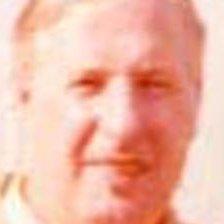
Dad would always be there to support or advise us, guaranteed! His input to most of the important decisions we have all made in our lives, both as children and adults, has proved invaluable.
Saturday was religiously 'Sport' day. If we were not attending a match, he would listen to the radio for news reports, watch Grandstand and of course Match of the Day. Sunday mornings, he would venture to the local parks to watch the amateur football being played.
Dad's passion was football and of course LFC, so from an early age I was tutored about the game and indeed Liverpool Football Club. His knowledge of the game was phenomenal and I often wondered why he never became a professional player.
One day I chose to ask this question, and he replied tongue in cheek that he had 'a bad knee from the war'. But that was Dad's humour all over. In reality, he knew he wasn't good enough, but I am positively sure he would have made an excellent football coach.
However, his brother Kevin did make the grade and Dad was immensely proud, especially when Kevin signed for Liverpool FC and had the honour of playing in the 1950 FA Cup final v Arsenal at the old Wembley.
'Witnessed hell'
Over the years, Dad and I attended many games at Anfield and at various away grounds following Liverpool FC. I could not have had a better footy mate.
So, on a beautiful spring day, 15 April, 1989, Dad and I set off in my car to Hillsborough, Sheffield, to watch that ill-fated FA Cup semi-final with our tickets for the Leppings Lane in hand.
Never in this world did we envisage anything to happen to us, as you expect to be safe attending any high-profile sporting occasion.
Win or lose, we were looking forward to the joyous, happy, festival atmosphere that these special occasions evoke.
Sadly, what transpired that day changed my life forever. Neither of us envisaged witnessing hell before our eyes, nor did we expect to be fighting so desperately for our lives, as were so many others.
The very last words I said to my father were, 'You will be okay'. How wrong I was.
When football, or indeed sport, was not on the agenda, Dad would be exemplary in his duties as a father. Often he would take us on walks through the nearby woodlands and down to the River Ribble, where we would spend many a day swimming or fishing.
He would tell us stories of his wartime exploits, which often ended in humorous punch lines. I think this enabled him to forget his bad experiences of those awful times.
I personally recall one of those tales he told me where he had to traverse a section of the Burmese jungle when he came into the path of a Bengal tiger. He said the tiger roared and leapt and pinned him to the ground, but thankfully it had no teeth or claws. That simple satirical story has remained with me all this time.
Immensely respected
I often reflect on his humour and it is something that has helped me battle through my difficult times.
Humour aside, Dad was very intelligent and astute. He was also very knowledgeable in world affairs. He could hold his ground in any debate situation and stand for what he believed in.
He loved words and I once asked him why. He replied that they were 'the first beautiful things he heard'. He admired human beings who strived for peace, freedom and democracy.
Dad was immensely respected within the community and there was never a day that someone wouldn't stop me in the street and ask 'How's your dad?', and then start reminiscing to me about their soccer or work days.
This even continued well after his death and I believe after all these years he is still mentioned within the Royal Mail, which is a marker to how high he was respected.
On one occasion in 1982 I was travelling from Preston by a hired coach to Wembley to watch England v Holland. The majority of the England supporters on the coach were Preston postal workers, who Dad just happened to be their boss, and I thought, once they found out what I was, then I was sure to get an earful.
They did find out who I was, but none of them had a wrong thing to say about Dad. In fact, they said he was firm, fair and honest, and they were sad when he retired. I also found out they had nicknamed Dad 'The Red Baron' because of his love of Liverpool and of course his surname.
'Loving grandparent'
In addition, Dad was an ever-loving, supportive and understanding husband to our mother, Winifred. He was a doting father to his children, a loving grandparent, a trustworthy confidant and a dear friend to many.
Just like his parents, Dad applied those very doctrines and principles stated earlier in his belief that he and his family would be protected, treated and respected in the same mode by those that he aspired to.
Earlier, I mentioned that St Joseph's was an integral part of Dad's life. In 1989, and much too soon, dad had his requiem there. Hundreds lined the streets to an already packed church.
Postal workers took time from their duty to attend the service, some still had their mailbags in hand. The people of Preston not only paid respects, they showed their support by recognising our father as a wonderful human being.
Gerard Baron Sr, 1921-1989, Christian, sportsman, serviceman, family man, worthy citizen. We all miss you, Dad, and may God bless you now and forever.
- Published8 April 2014
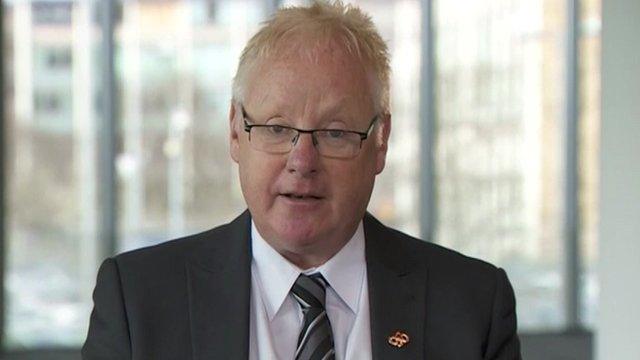
- Published26 April 2016
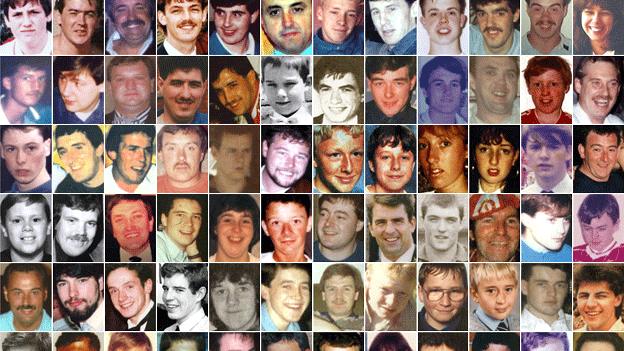
- Published31 March 2014
